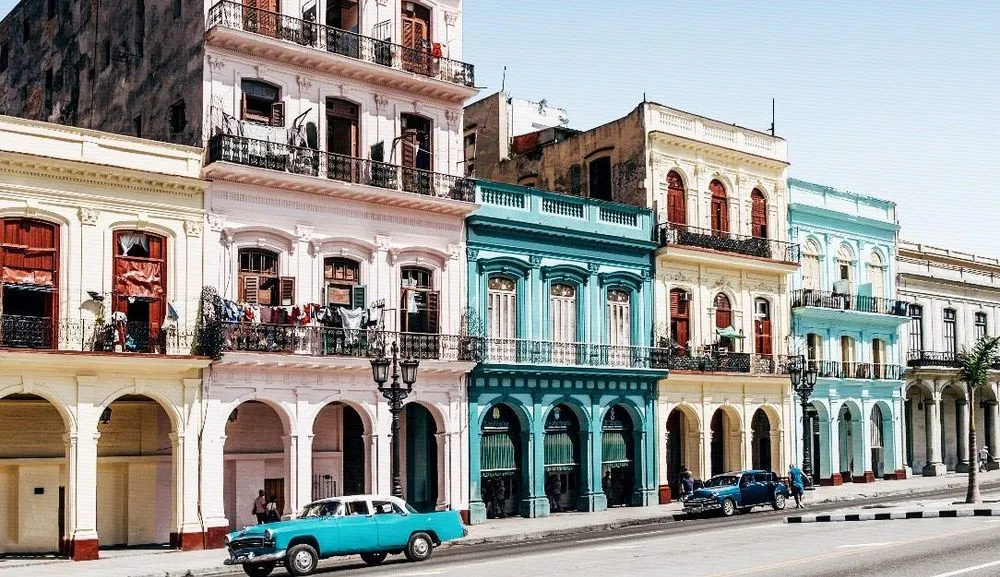Cuba clamps down on social media and internet access as protests spread
In an effort to quell a historic show of popular dissent against Cuba’s communist dictatorship, the Cuban government throttled internet access across the country on Sunday and Monday.
Cuban internet users began suffering outages late Sunday afternoon, shortly after thousands of Cubans took to the streets to protest the government’s mismanagement of the COVID-19 pandemic and an intensifying food shortage. Internet users experienced two “brief total blackouts” and “erratic” coverage for the remainder of the day, according to the network monitoring company Kentik.
On Monday, the internet monitor NetBlocks reported that Cuba’s state-owned telecommunications provider, ETECSA, had begun implementing targeted restrictions against popular social media platforms, including Telegram, Twitter, WhatsApp, Instagram, YouTube and Facebook. VPN services remain effective at circumventing the restrictions, according to NeBtlocks.
The protests marked one of largest outpourings of dissent in Cuba since the Cuban Communist Party came to power 62 years ago—and social media may have played a critical role in fueling them.
“I would say that social media is responsible for the whole thing, 100%,” said Daniel Gonzalez, a Cuban digital activist who now lives in Miami. “Social media gave Cubans a way to organize that was just not possible before. And that’s why the government shut down social media immediately.”
Confirmed: Social media and messaging platforms restricted in #Cuba from Monday on state-run internet provider ETECSA; real-time network data corroborate reports of internet disruptions amid widening anti-government protests; incident ongoing #CubaSOS
— NetBlocks (@netblocks) July 12, 2021
https://t.co/7eGwPS1Mqf pic.twitter.com/kY3G1qMAse
Gonzalez, who remains connected to many dissidents through a live-audio chat room he organizes each week, added that the protests are unlike anything he has ever seen before.
“It has no comparison,” he said. “This time, it is the whole country coming together to say that they are tired of everything that is going on.”
Since smaller-scale protests broke out in Cuba last November, Cuba’s communist leadership has grown increasingly concerned that citizen’s rising social media usage has loosened its grip on power.
In the days prior to the protests, the hashtag #SOSCuba went viral on Cuban social media. The campaign, which sought to draw attention to Cuba’s worst Covid-19 outbreak since the pandemic began, drew 249,000 reactions on Twitter, according to Cuba Noticias 360.
But Cuban authorities did not just crack down on protestors in the digital realm.
Throughout the day Sunday, Cuban internet users posted videos, photographs, and testimonials of violence inflicted on demonstrators by Cuban police and security forces.
21-year-old social media influencer Ariel Falcón attended the Sunday protests in the Cuban capital of Havana. Reached over Twitter, Falcón’s brother, Arnaldo, told The Record that the police arrested Ariel after he tried to film the demonstrations and post them to his Twitter account, where he has 27 thousand followers.
“The government simply could not accept a young man with clear ideas,” Arnaldo said.
Twenty-two-year-old activist Ruhama Fernandez also took to the streets in Cuba on Sunday. She told The Record that the day had been special and that she had never seen the Cuban people rise up like that before.
But Fernandez, a prominent activist who regularly speaks out against the government’s human rights abuses via social media, never made it far from her home in Santiago de Cuba. Police stopped her and several others before they could join the main protests in the city. Sometime thereafter, Cuba’s special police, the Black Berets, arrived.
Fernandez claims they fired tear gas at her and her friends, and then assaulted them.
“I don’t know what is going to happen to me tomorrow,” Fernandez said, her voice shaking. “They might knock on my door tomorrow and arrest me for having spread the pandemic, for disobedience, for whatever they want. They might even kill or disappear me.”
“But if that is the price I have to pay, the truth is, every minute that I am able to shout ‘Freedom!’ in Cuba’s streets—well, I can’t explain to you how much that means to me.”


